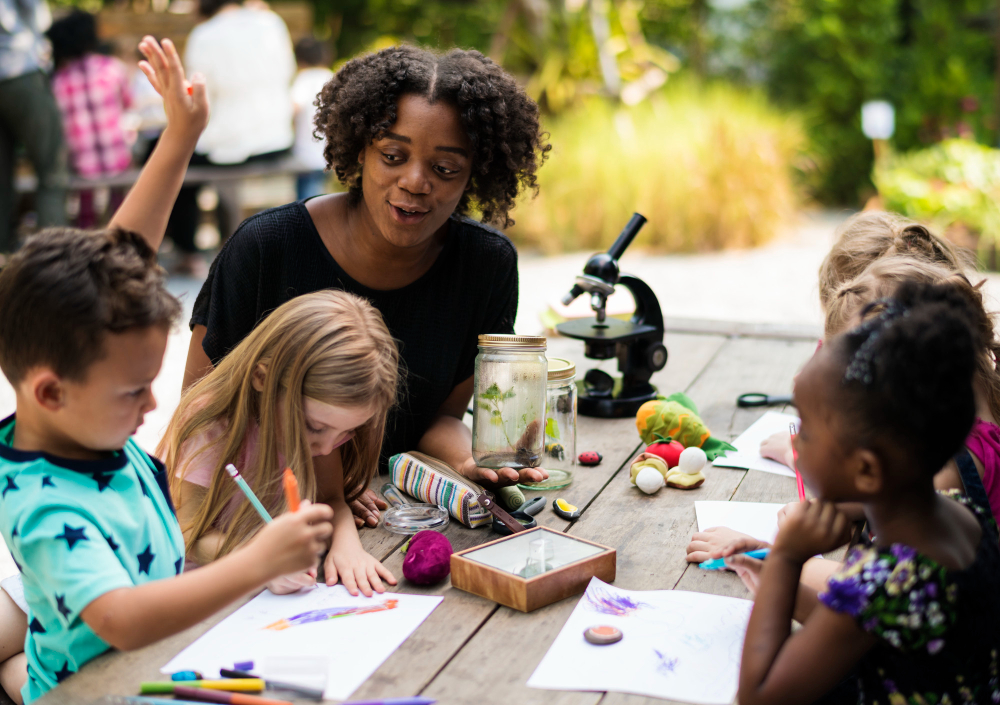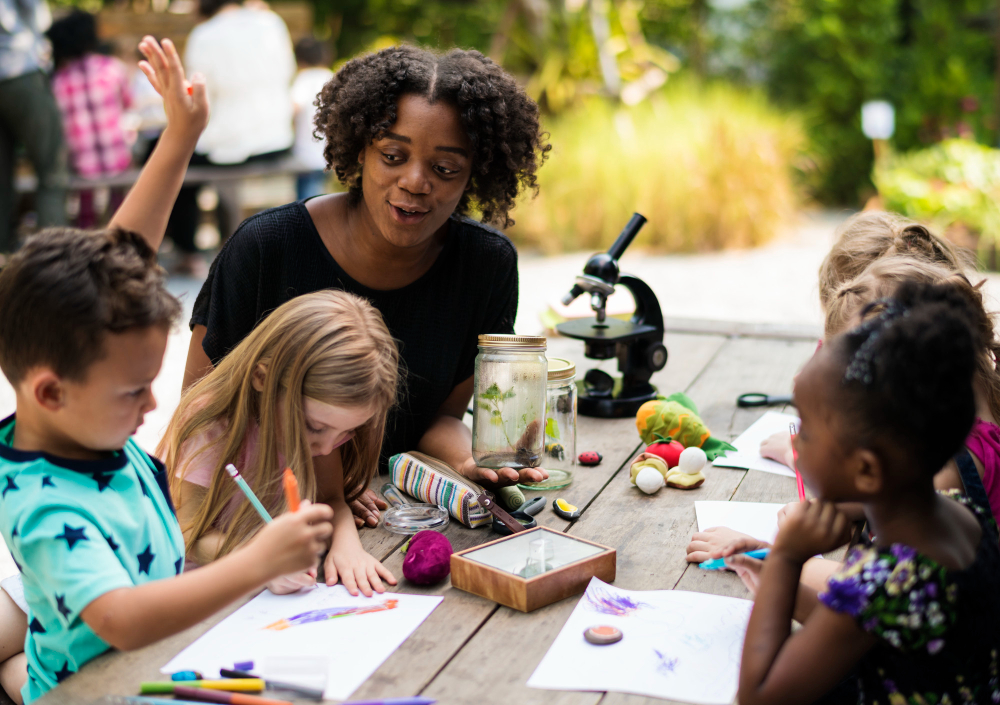26Jan
Early Education: A Guide for New Parents
Deciding when and how to kick off your little one’s school journey is like stepping into a whole new phase of your parenting escapade. It’s a mix of factors to work through, all specific to your kiddo and family groove, that shapes this big decision.
Determining the ideal age for your toddler to venture into the world of school is a super personal decision. While some parents go straight back to work and opt for creche over a nanny at home, some prefer to keep their baby or toddler at home for as long as possible. Around the age of two or three is when many parents find themselves pondering this significant decision. Your child’s developmental milestones, their need to harness some social skills, and the dynamics of your family play a crucial role in this choice.

Choosing to enrol your little one in early schooling comes with a myriad of advantages. While the idea of keeping them home until the age of 18 might seem appealing, it’s important to acknowledge that during their early years, children begin to blossom into social beings. Early exposure to a school environment serves as a nurturing ground for the development of social skills. Interacting with peers becomes a playground for communication and collaboration. It’s in these early interactions that crucial lessons about sharing, playing alongside others, and managing big emotions start to unfold. The camaraderie between little ones becomes a cornerstone for building a foundation of social intelligence.
Moreover, toddlers thrive on routine, and a school setting provides precisely the structured environment that can be immensely beneficial for their budding sense of order and predictability. The consistent routine of a classroom helps toddlers understand the flow of their day, providing a sense of security and comfort in knowing what to expect next. This sense of structure contributes significantly to their overall well-being and helps them navigate the world with a greater sense of confidence.

Delving into the realm of quality early childhood education reveals a cornerstone philosophy – play-based learning. It’s a dynamic approach where cognitive development takes root in the exploration of the world through play. Early schooling recognises that a child’s natural inclination to learn is intertwined with the pleasure derived from playful exploration. By intertwining education with play, little learners discover and absorb concepts in a way that feels like a delightful adventure rather than a structured lesson. This approach not only fosters a love for learning but also ensures that education is an engaging and enjoyable journey from the very beginning.
Embarking on the journey of formal schooling, while filled with numerous advantages, also presents certain challenges that parents need to navigate. The transition to school life is a unique experience for each toddler, and while some seamlessly adapt, others might grapple with the common hurdle of separation anxiety during the initial days. This phase necessitates a considerable amount of patience and understanding from both parents and teachers alike, as the emotional well-being of the child takes precedence.
What is important to remember is that each child develops at their own pace. It’s crucial to recognise that not every child may be emotionally or socially ready for the group dynamics that come with a school setting. Some toddlers might need additional time to acclimate to the social intricacies of a classroom, and this diversity in readiness should be acknowledged and respected.
One element to observe to determin whether or not your toddler is in the ‘ready lane’ is signs of social readiness. These include the curiosity and eagerness to engage with other children. If your little one exhibits a natural interest in interacting with peers, it’s a promising signal that they may be socially prepared for the dynamics of a school environment. These early social interactions set the stage for positive collaborative experiences, fostering a sense of comfort and enthusiasm in group settings.
For some parents, communicative readiness plays a pivotal role in determining a child’s readiness for early education. The ability to articulate basic needs, comprehend simple instructions and be able to tell you about their day signifies a level of communicative readiness. Waiting for these skills to be in place allows your little to express themselves, understand basic concepts, and engage in meaningful interactions with both peers and teachers.
Embarking on the journey of early schooling marks a significant transition for both parents and toddlers alike. Once the decision is made, the question is: How do we as parents best prepare our little ones for this big leap into a new chapter of learning and growth?
One effective way to initiate the process is by familiarising your toddler with the school environment through playdates. Transforming the school into a place of excitement and joy can ease any apprehensions. Organising informal visits or playdates in and around the school grounds provides an opportunity for your child to explore and become familiar with the surroundings. By creating positive associations with the school through play, you lay the groundwork for a smooth and enjoyable transition.
Establishing a consistent morning routine serves as a bridge, easing the transition from the comfort of home to the novelty of school. A predictable routine helps toddlers feel secure and understand the flow of their day, creating a sense of stability amidst the new experiences that school brings. This routine can include activities like dressing, having breakfast together, or singing a morning song on the way to school.

Forge an open line of communication with your child’s teachers. A collaborative approach ensures that any concerns or updates are promptly addressed. Building a strong partnership with teachers creates a supportive network that enhances the overall learning experience for your toddler. Regular communication helps both parents and teachers stay informed about the child’s progress, enabling a proactive approach to addressing any challenges that may arise.
Celebrating the small victories and achievements at school becomes a powerful tool in reinforcing your toddler’s confidence and enthusiasm for learning. Whether it’s completing a puzzle, making a new friend, or mastering a new skill, acknowledging and celebrating these accomplishments creates a positive association with the school experience. This positive reinforcement contributes to building a strong foundation for a lifelong love of learning.
Encouraging participation in school activities not only fosters a sense of security but also aids in building familiarity with the school environment. Involvement in events and activities allows your toddler to interact with peers, teachers, and the school community at large. This engagement nurtures a sense of belonging and comfort, making the school environment feel like a second home.
Navigating the decision of when to start your toddler in school is a profound step in the parenting journey. By gauging their readiness, considering the nuanced pros and cons, and taking steps to ensure that school is seen as a positive experience, you can cultivate a successful transition to the vibrant world of early education.
